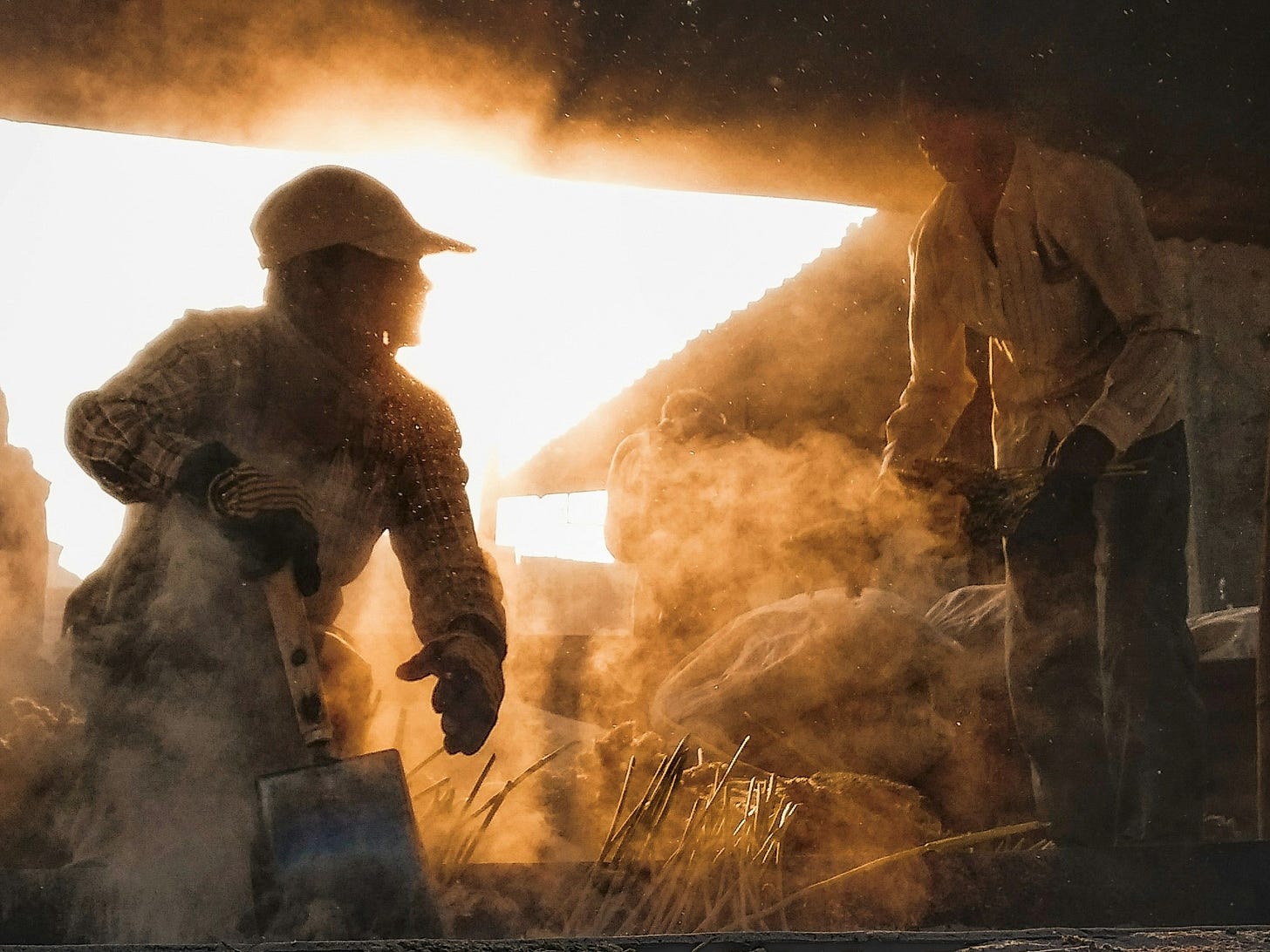
Ravi woke up drowning in heat.
His bed sheet stuck to him like clingwrap, his skin slick and seared in the pre-dawn suffocation. The power had gone out again. Not that it mattered…the Boiling Districts hadn’t seen air-conditioning in years. There were no comforts here, only labor and suffering. He kicked off the sweat-soaked sheet and stumbled to the window. His eyes stung as he stared at the street below, noticing the sticky asphalt warping the air around it. The temperature was around 53°C.
Skin would break into blisters in seconds if one wasn’t nimble. Heat rose in thick, dizzying waves making the surroundings tremble in the distance. Ravi squinted against the glare, his eyes tracing the way the heatwaves twisted the air. He tilted his head upward, past the flickering mirage, beyond the Transition Zones, past the towering barricades and the armed checkpoints.
Above it all, the forbidden oasis. Evercool Heights.
The glass towers stood under a vast transparent dome shielding them from the brutal air outside. Temperature control systems ensured the climate never shifted, maintaining a perfect steady regulated 23°C. The streets held no trace of heat. Every tree was perfectly watered, their leaves full and green, unaffected by the withering sun. Citizens here had the privilege of walking barefoot, slowly, if they desired. Their clothes were fresh and thin, and their skin remained sweat-free, never once reddening with heat rash. They strolled lazily through air-conditioned corridors, sipping iced drinks, completely unaffected by the curse of the sun.
Evercool Heights was for the Elite. The Transition Zones were for the Obedient. And the Boiling Districts? They were for the Discarded, the ones whose labor kept Evercool Heights running. Cool air pumped through underground channels maintained by workers who never felt it. They had no choice. They toiled under threat of dehydration, repairing its water lines, maintaining its cooling systems, mining the last drinkable reserves from the ground—all while their own throats cracked with thirst. Their labor was not service; it was survival, extracted through necessity and force. They sweated so the Heights could stay cold. They burned so the others could remain untouched.
Down here in the Boiling Districts, people moved like wilted shadows. The streets reeked of sweat and evaporated water. People dashed between shrinking patches of shade, shielding their eyes, conserving what little energy they had. Loose-layered sun-bleached clothes draped over their bodies. High UV exposure cooked the body from the inside, skin burning and cracking to deep brown. Even breathing felt like swallowing fire.
We wanted to limit any strenuous activity, but there was no escaping it. No one here can afford to stop moving, to stop working, to stop chasing the next barely sufficient ration. The government made routinely made a grand show of “helping.” They sent hydration packets—exactly 250ml per family member per day. Just enough to keep them from collapsing at their workstations. But never enough to quench thirst. For the Boiling Districts, hydration was currency, and we earned every drop trying to keep Evercool Heights sustained and running.
Ravi tried to buy his way up. Ten-day shifts, no black-market water, full attendance at climate adaptation workshops for a mere 5000ml per session. They called it a “path upward”, giving those who preserve “a fair chance”.
It was a scam.
Evercool Heights didn’t accept newcomers. It took bloodlines, those have inherited access and generational privilege. Ravi had nothing they wanted.
Once, Ravi saw an Evercool Heights officer step beyond the gates just for a second, to inspect something. The air bent around him like a force field. He had a cooling vest, sleek and white, with the royal crest printed on the back. He stood there completely unaffected, the heat curling away from him like it knew who he was.
Ravi imagined walking up to him. Speaking. Asking for help. But he knew what would happen.
The drones would descend, blaring: Unauthorized movement detected. Return to designated zone. And if one didn’t move, the drones fired white phosphorus munitions that burned worse than the sun, burning until it has consumed itself, and the unfortunate target it struck. He thought often of trying to advance to the Transition Zone, of sneaking through an unguarded path. Each time, seeing the drones reminded him of his place.
It had been a foolish thought. There were no uprisings here. The heat stole ambition before it can become action. The body did not waste itself on rebellion when survival alone required everything.
Still, sometimes, in the worst moments, he caught himself staring at his ration card, at the empty hydration balance, at the cracks in his own hands. He imagined stepping onto cool, shaded streets, air crisp against his skin, a glass of water in his hand that never ran dry.
Instead, he stood there, glancing out his window.
Watching his dream… burn.
If you are confusing this with real news, please unplug your Wi-Fi router, go outside and touch some grass to get back to reality. Full disclaimer here.



